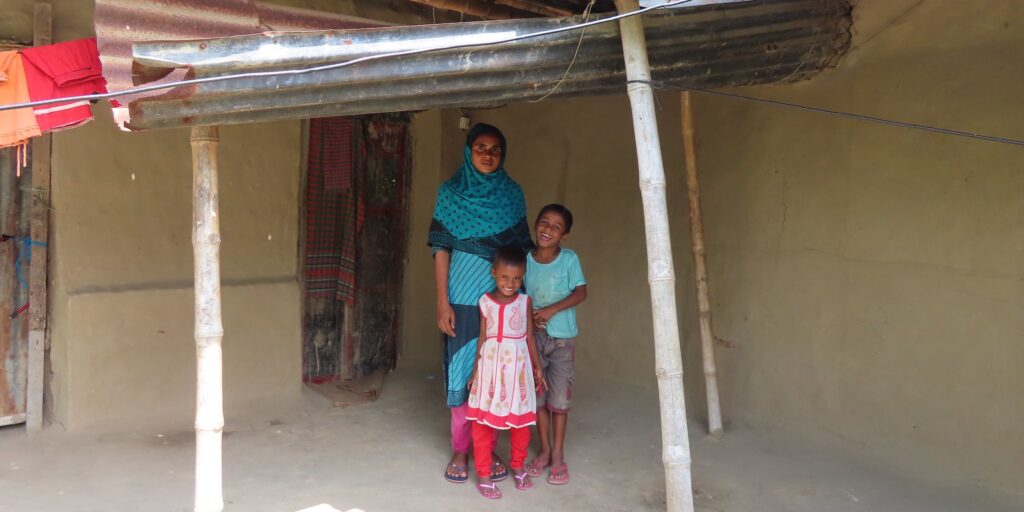Rumman is a 7-year-old boy who lives with his mother and younger sister in the Jhilim community of Bangladesh. Until recently, his community was not practicing healthy habits regarding hygiene.
Rumman’s father lives and works as a mason some distance away in the capital city of Dhaka. Occasionally, he returns to their community when he is granted leave. The money he sends his family is their only means of support. It is not uncommon for fathers to live and work far away from this community and, as a result, many of those absent breadwinners weren’t aware of or concerned about some of the conditions in the village.
For instance, community members often practiced unhealthy habits that contributed to prevalence of dangerous diseases. Malnutrition and diarrhea were very common. When children became seriously ill, the cost of care was prohibitive.
Unhealthy Habits
The extended family had no access to safe water for drinking, cleaning, or other uses. They shared an unsanitary latrine near their home. They were allowed to collect drinking water at a neighboring house, so they believed that water to be safe and from a good source.
But good water access and habits depend on so much more than access to a well, emphasizes Stewart Goodwin, WASH Technical Advisor for Food for the Hungry (FH). “That’s why FH doesn’t have only a ‘water program.’ In the communities where FH works, we emphasize holistic WASH – Water, Sanitation and Hygiene efforts,” said Goodwin, who will participate in the United Nations Water Conference later this month.
The water in any well, he explained, is only as healthy as the practices and environment of the community living nearby and accessing it. For example, Rumman’s family used a nearby pond for bathing, clothes washing, and general cleaning. The pond was shared by most people and animals in the community, and it was polluted by runoff from fields where animals and people practiced open defecation. It was also routine for children to urinate in the nearby yards.
But without water safety education, community members made little connection between these habits and the water-borne diseases that were prevalent throughout the community.
A Lack of Guidance
That’s why FH works with an entire community to develop healthy habits. Rumman’s family alone could not make the differences needed, because “safe water” means so much more than having a well – especially when water in that well is polluted. The Jhilim community had no guidance to develop healthy habits that would protect their water sources.
Help Arrives
Food for the Hungry came to the Jhilim area in October 2020. Rumman’s mother, Rozina, welcomed their help and became involved in their community activities from the beginning. She assists in the FH office and has assumed the duties of community secretary. She’s learned a lot to help improve her family’s health and quality of life.
When community needs were assessed the following year, Rozina’s family was selected to receive a sanitary toilet.

The entire family is very happy with this new addition to their living space. They learned many healthy habits with the delivery of the toilet. One healthy habit is the family keeps different sandals to wear in the toilet area only. Rozina explains that they go more regularly, since there is no longer a bad smell, and clean water and soap are always available in the room.
The family members along with their entire community are learning about healthy habits, clean water, and related hygiene through FH WASH training and initiatives. As a result, there is now little illness in their family.

More Than Clean Drinking Water
March 22 is World Water Day, and Rumman’s family has learned that the need for “clean water” involves much more than simply having access to a well. Healthy habits the family has at their home protects their entire community’s water for cleaning, bathing, cooking, and drinking.

You May Also Enjoy These Posts:



